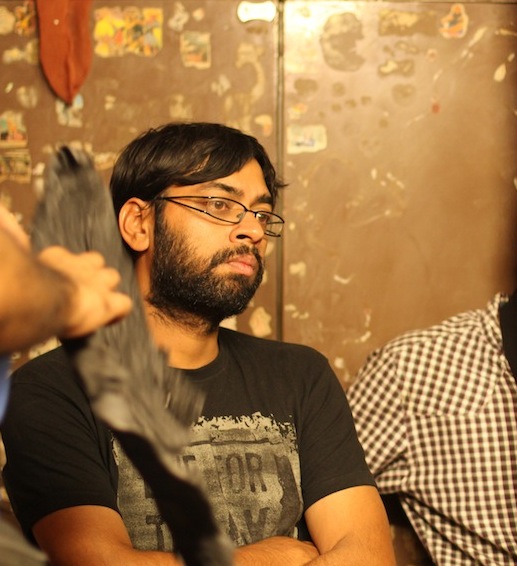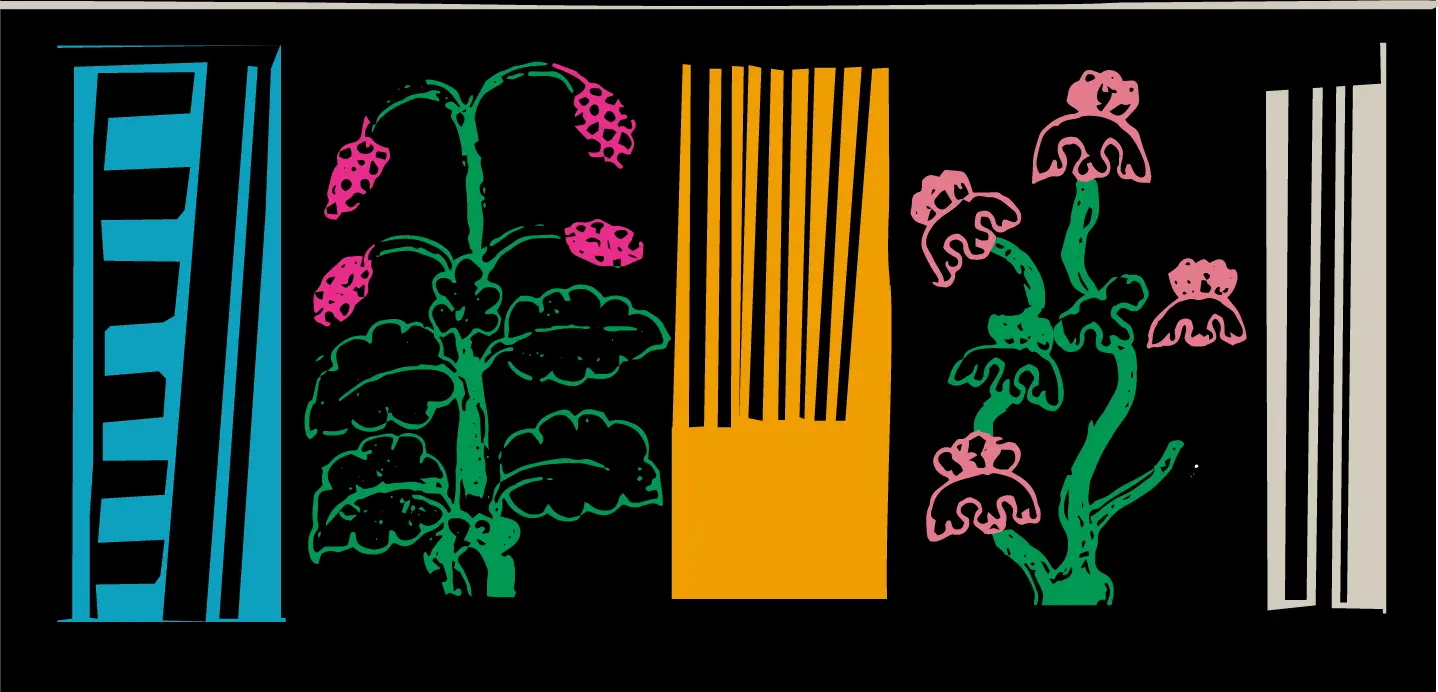Kanu Behl is a graduate of the Satyajit Ray Film and TV Institute, Kolkata, where he majored in Film Direction. In 2007, he dove into feature narratives, as an assistant director to Dibakar Banerjee on the critically acclaimed feature Oye Lucky Lucky Oye. In 2010, he co-wrote Love, Sex aur Dhokha with Dibakar Banerjee. The film brought him recognition as a voice of note.
His first feature as a writer/director, Titli, is the Opening Night film for DIFF 2015.

Kanu Behl
Could you explain the meaning of the name Titli?
Literally ‘Titli’ means ‘Butterfly’. It is one creature that has the most drastic metamorphosis from being a lifeless ugly caterpillar to that of a vibrant beautiful butterfly. The title of the film is quite tongue-in-cheek as the character – Titli’s journey is quite the opposite. From being an innocent oppressed boy, eventually turning into an oppressive monster himself. Some of my friends have another theory to choosing a feminine name for a male character. They say it’s because I myself have personally been misunderstood to be a woman (Kanu is usually a girl’s name in India) so many times, and since this is a very personal film, that I subconsciously chose a woman’s name for my male protagonist.
Most first films are said to be very personal. So how’s Titli personal to you ?
The core of the film comes from an extremely personal experience. I had a very difficult relationship with my father, growing up. Like a lot of young men in India, I was always trying to escape this really heavy oppressive presence in the house, so I started exploring myself, I left home, I did my own thing. Then I eventually went to film school and in the subsequent years, I realised the more I was obsessing over wanting to be someone else other than my father, the deeper I was becoming exactly like him in different ways, and gradually it turned to being oppressive towards someone else. Titli was three very different films. The film was really close to being made. I almost got commissioned by a really big studio, I was told ‘your cheque is ready, go ahead and sign and start production’. I ran away. By the time I got down to the third draft, I knew that the question was: ‘Where does the root of this whole problem lie? I want to escape an oppressor, but I am like him.’ That’s where the final film takes you, generating that spirit inside you, to break the circle. I don’t know what happens to the characters in the film, after the film ends, I am not sure whether they’ll be able to get out of that circle. But I think by the end of the film, they at least want to do it.
Do you identify with Titli?
I think I identify with all the three men. I think I was Titli, hopefully I am not Titli anymore! I think I feared turning into Vikram, which all Indian men usually turn into: the elder brother, who feels wronged, who’s already gotten something that has been passed on to him by the previous generation, who’s dealing with a lot of loss, who’s trying to compensate for that loss, and better it, but within that, is constantly lamenting for what has not been given to him.
You could think while watching Titli that it belongs to a genre that is growing now in Mumabi, a kind of social cinema, with a message about the real urban India. Would you say that Titli is a film with a message?
I don’t think I was trying to give any message. One of the quotes that I really love is from Kamal Swaroop, who has made a film called Om-Dar-B-Dar. He made a documentary on Pushkar in which he’s sitting on a tempo with his two kids and he’s travelling on the road. It’s a moving shot, and his children ask him ‘Papa, where did you find this story?’ and he says ‘I don’t know, beta, maybe it was just laying on the road somewhere and I just picked it up.’ That’s what I am really enamored by. I don’t think I wanted to tell a story, I think the story has found itself, and has managed to come out through this bunch of people who have come together to make this piece. You’d just think that there’s a message in the film because of the issues it’s dealing with – arranged marriages, poverty, violence that comes from that poverty. What I was really interested in were these ghosts that are within a family. The more I talk to myself, to the script, the more I question things. That’s why there’s the photograph of the dead grandfather in the house. Who do you blame? Do you blame Titli? Do you blame Vikram? Do you blame the father who is silent? I think it’s a mistake to go up to the father and say ‘You’re the real pig’, because he’s not. What about the dead grandfather, who’s constantly looking around in the house, who’s been tended to every morning. The day I got the idea of the dead grandfather’s photo was within a week of me discovering R.D. Laing, the psychiatrist, and his book called ‘The Politics of The Family’, which he’d written some fifty years ago. Laing says how images are transferred unconsciously from one person to another within the family. And sometimes you don’t even meet your dead grandparent, but the parents pass on that image of the dead grandparent on to the grandkids, saying ‘you’re just like your grandfather’ and those ghosts are being passed on.
Could you talk about the crucial role of women in your film and in the Indian society today. How it has evolved?
Since the advent of globalisation in 1991, the Indian woman has gone beyond the mere role of playing teacher, apparel-boutique-owner and other such, in her life. She is today in every work field, working full-time, sometimes over-time. That has somewhere created ripples in the balance that was being maintained for long in Indian society. Both urban men and women are still trying to deal with this phenomenon, including the so-called intelligentsia. Titli was always intended as an anti-patriarchal film. Thus, all the women, even as they are very real, are strong and have an individual voice. Whether it is Neelu, Sangeeta or even the female-lawyer who comes for precisely one scene in the film, these women are thinkers and doers, dictated only by the morals of their own conscience. However, since they neither have physical nor financial power over the men in their lives, they are often finally left to their mercy, making their struggle to escape longer and tougher. But whether its Sangeeta’s journey towards freedom from Vikram, or Neelu’s evolution to realizing the ‘true’ Prince and telling Titli towards the end that ‘her hand will have a permanent fracture’, the film at every point intends to voice their pain in an empathetic – and not sympathetic – way.
[This interview was conducted by Dibakar Banerjee Productions and Yash Raj Films.]
Learn more about our programme, and register now to witness the best of Indian and international indie cinema!




